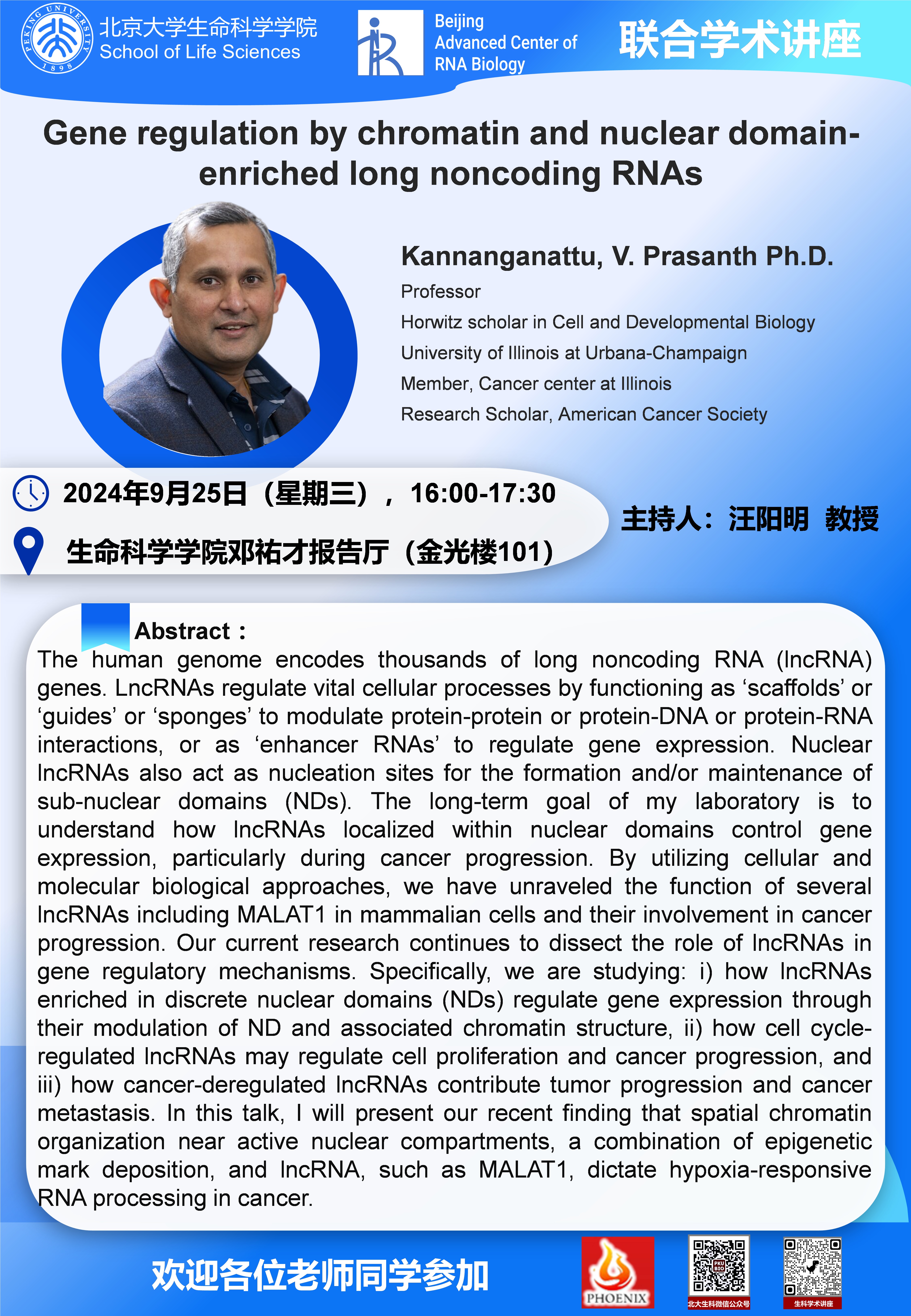Speaker: Kannanganattu, V. Prasanth Ph.D., Professor, Horwitz scholar in Cell and Developmental Biology, University of Illinois at Urbana-Champaign, Member, Cancer centre at Illinois, Research Scholar, American Cancer Society
Time: 16:00 - 17:30 p.m., Sep 25, 2024, GMT+8
Venue: Youcai Deng Lecture Hall, School of Life Sciences, PKU
Abstract:
The human genome encodes thousands of long noncoding RNA (IncRNA) genes. LncRNAs regulate vital cellular processes by functioning as 'scaffolds' or 'guides' or 'sponges' to modulate protein-protein or protein-DNA or protein-RNA interactions, or as 'enhancer RNAs' to regulate gene expression. Nuclear IncRNAs also act as nucleation sites for the formation and/or maintenance of sub-nuclear domains (NDs). The long-term goal of my laboratory is to understand how IncRNAs localized within nuclear domains control gene expression, particularly during cancer progression. By utilizing cellular and molecular biological approaches, we have unraveled the function of several IncRNAs including MALAT1 in mammalian cells and their involvement in cancer progression. Our current research continues to dissect the role of IncRNAs in gene regulatory mechanisms. Specifically, we are studying: i) how IncRNAs enriched in discrete nuclear domains (NDs) regulate gene expression through their modulation of ND and associated chromatin structure, i) how cell cycle-regulated IncRNAs may regulate cell proliferation and cancer progression, and iii) how cancer-deregulated IncRNAs contribute tumor progression and cancer metastasis. In this talk, will present our recent finding that spatial chromatin organization near active nuclear compartments, a combination of epigenetic mark deposition, and IncRNA, such as MALAT1, dictate hypoxia-responsive RNA processing in cancer.
Source: School of Life Sciences, PKU
